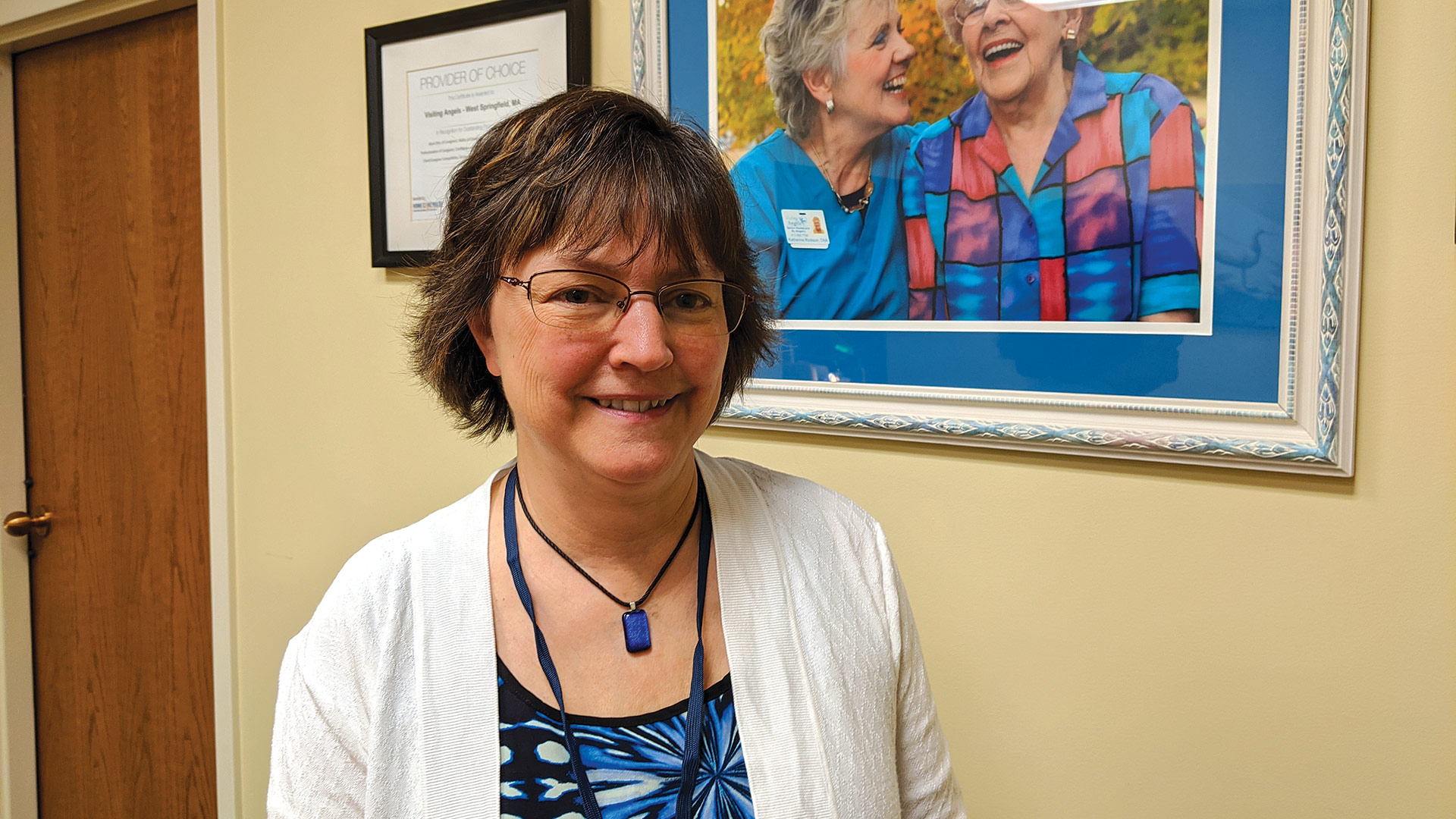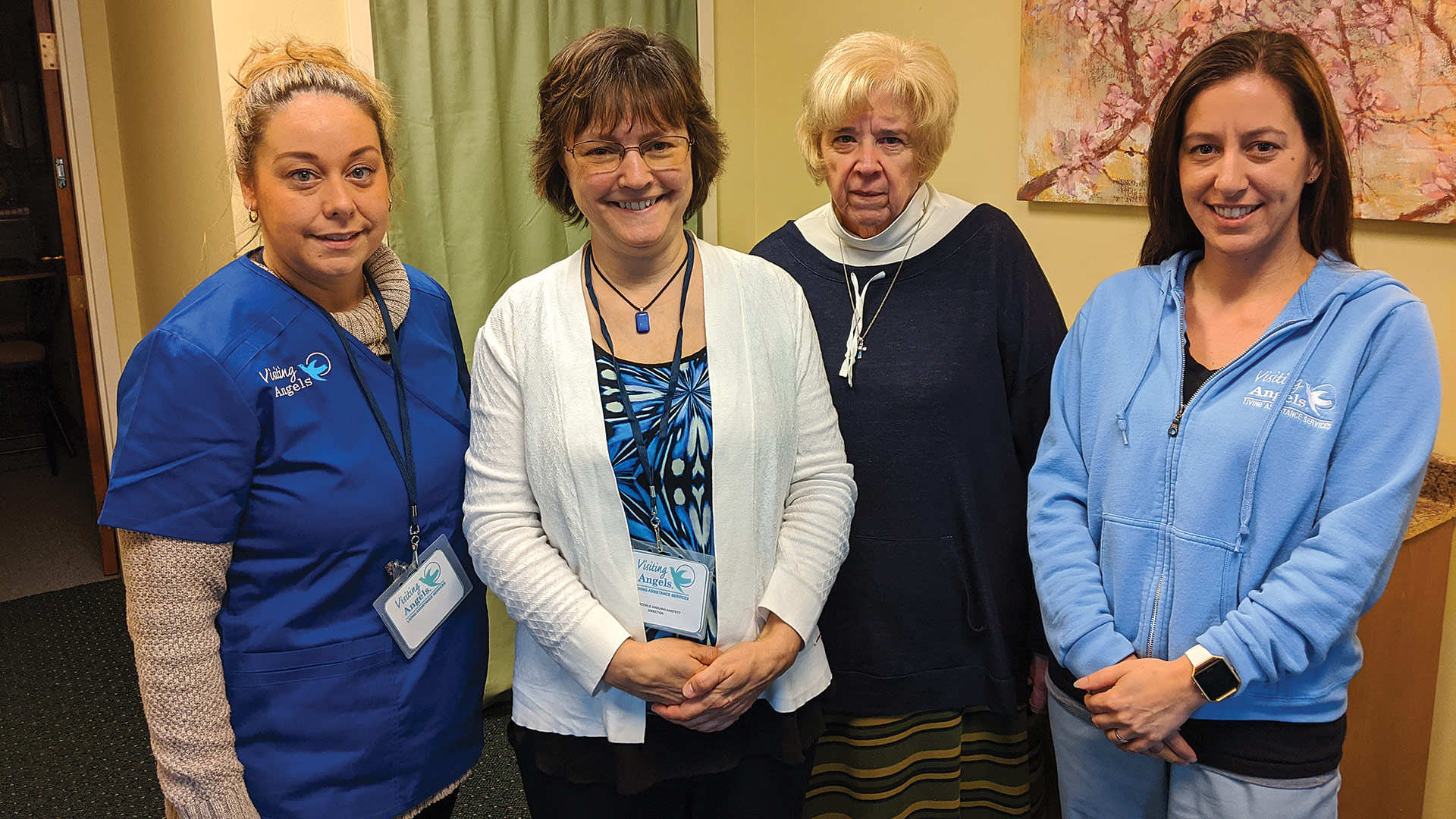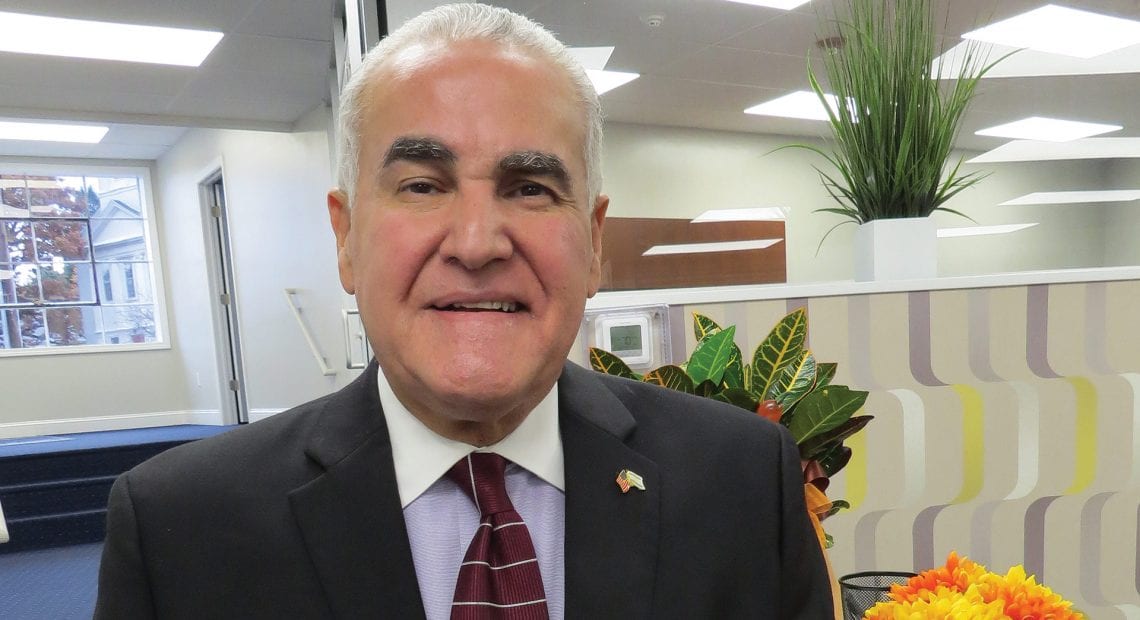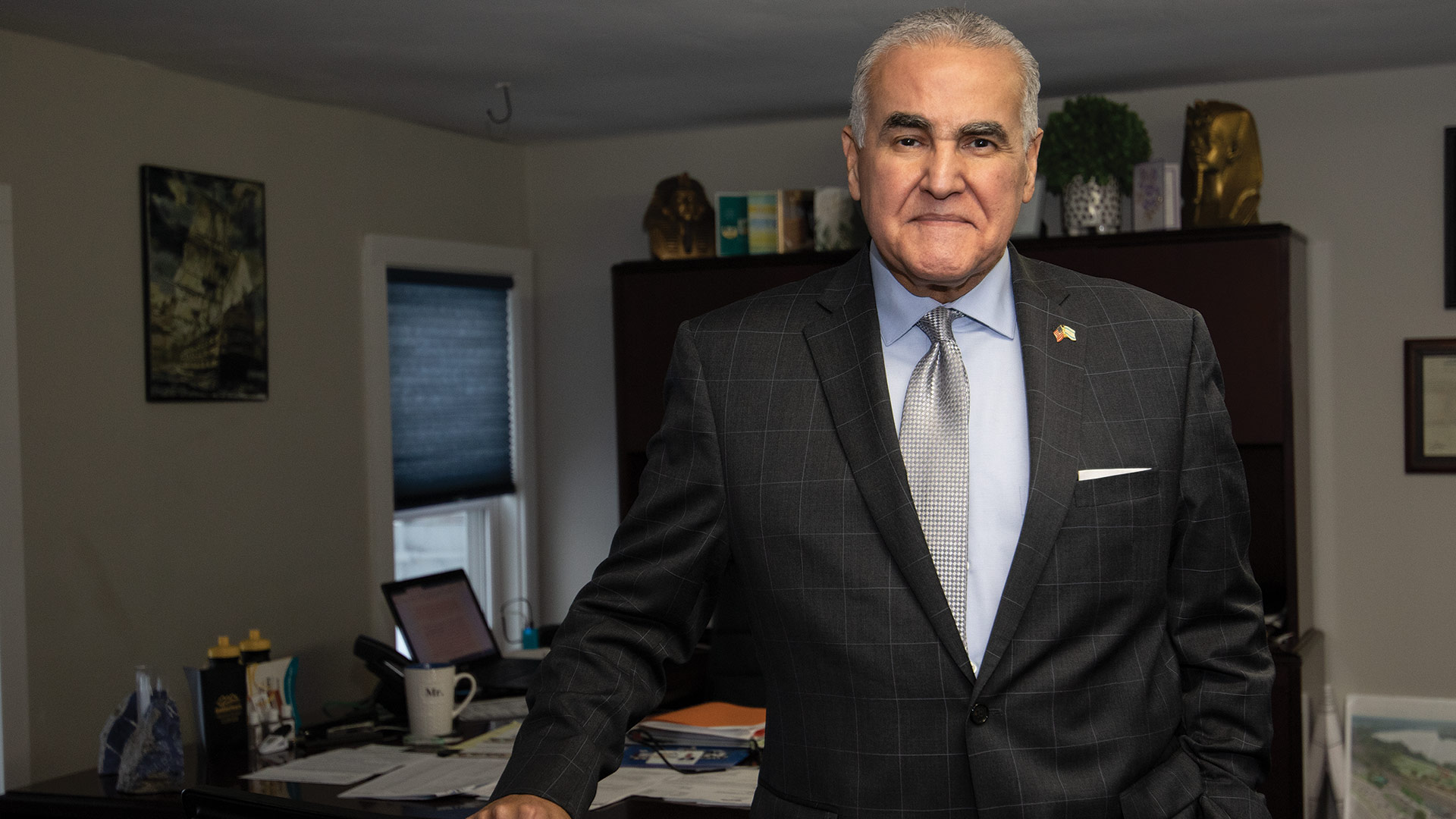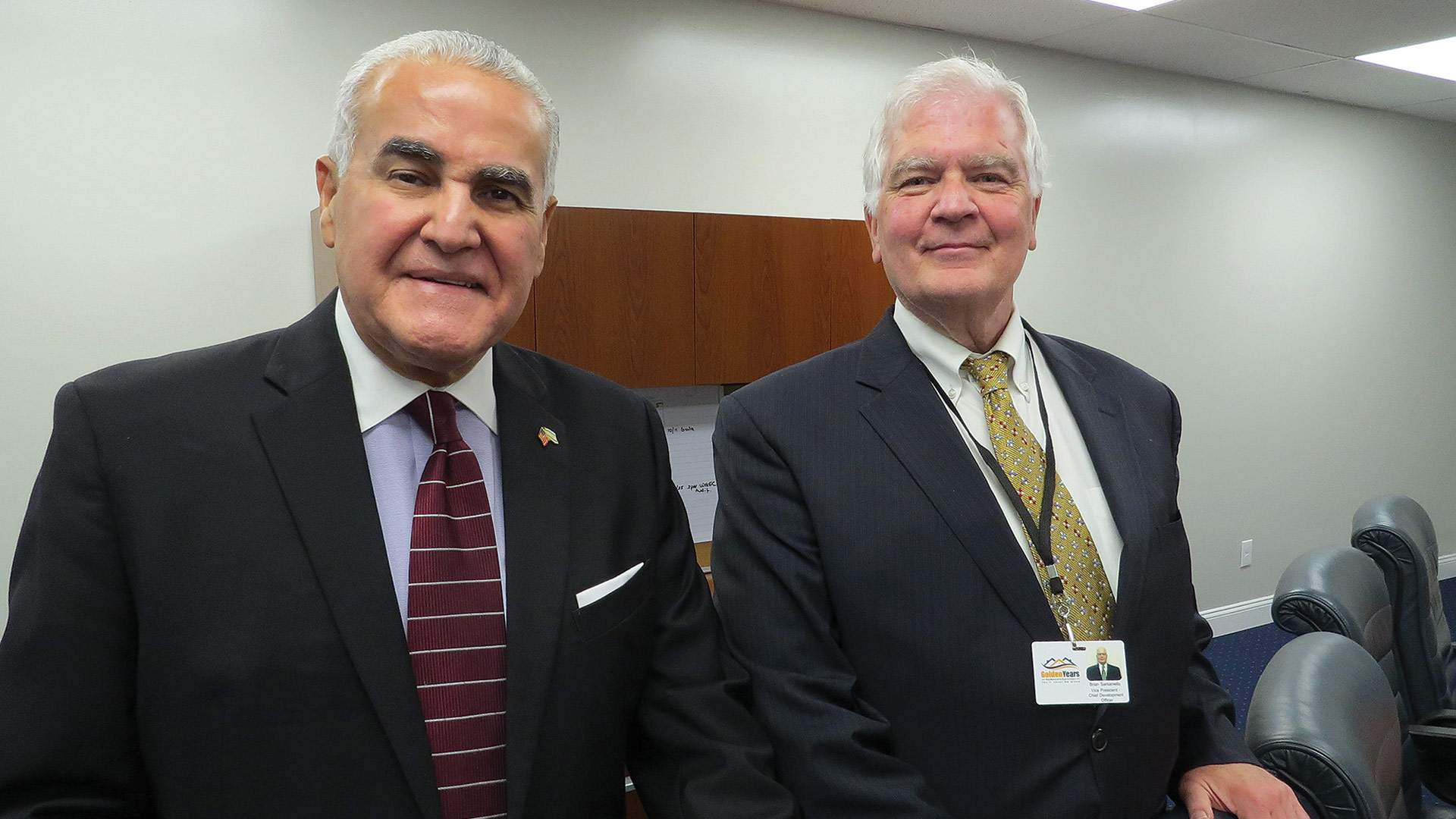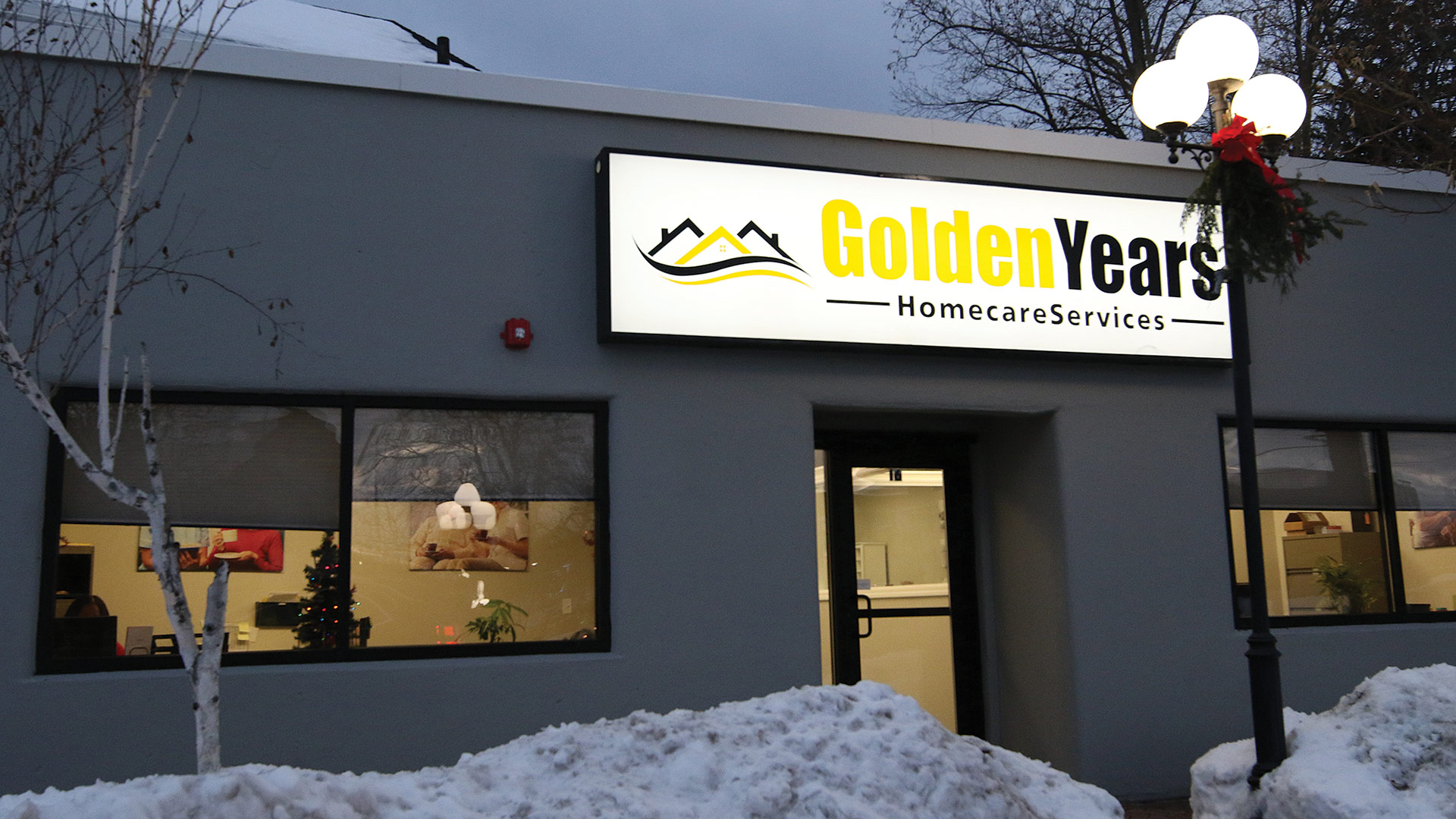House Calls
While the pandemic may have challenged the home-care industry, it certainly didn’t suppress the need for such services. In fact, demographic trends in the U.S. — where about 10,000 Baby Boomers reach age 65 every day — speak to continued, and growing, demand for care services delivered in the home. That means opportunities both for agencies who specialize in this field and job seekers looking for a rewarding role and steady work.
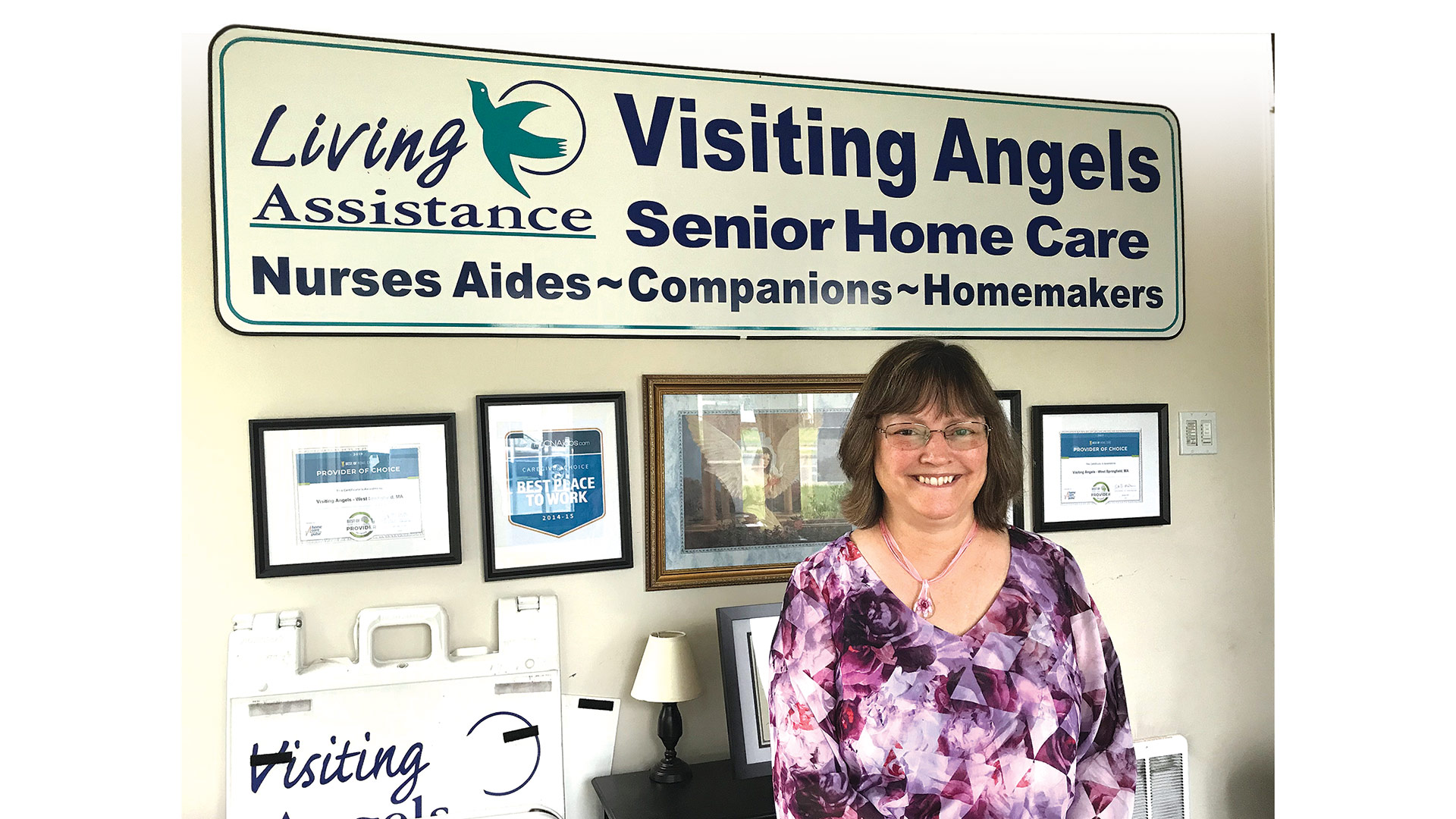
Michele Anstett says business was like “falling off a cliff” when COVID hit, but client volume has returned to normal.
By Mark Morris
In early 2020, Michele Anstett, president and owner of Visiting Angels in West Springfield, was pleased because her business was doing well. As a provider of senior home care, she managed 80 caregivers for 50 clients.
“We were going along just fine,” she said. “And when COVID hit, it was like falling off a cliff.”
The business model for companies like Visiting Angels involves interacting with people in their homes, so when early mandates encouraged people to keep away from anyone outside their immediate ‘bubble,’ it hit the industry hard.
Even though caregivers were designated as essential workers, Anstett saw her numbers shrink to 39 caregivers who were now responsible for only 19 clients. In order for her business to survive, she continued to provide services for her clients who needed personal-care services around the clock and for those who had no family members in the area.
“Where possible, we asked family members to step in to help out,” she told BusinessWest. “At the beginning of the pandemic, there was less risk to everyone when a family member could be involved with their loved one’s care.”
Anstett also incorporated a detailed checklist of risk factors for each caregiver to review to prevent COVID-19 from spreading to them or their clients.
“I thought patients weren’t following up because of a language barrier. As it turns out, they weren’t responding because they didn’t understand the severity of the situation.”
“We talked with caregivers about the people in their circle,” Anstett said. “It was similar to contact tracing, but we did it beforehand, so people would understand what they had to consider to protect themselves, their families, and their clients.”
A Better Life Homecare in Springfield runs two home-care programs. In one, it provides personal-care services such as helping seniors with grooming, cooking, laundry, and more. The other program provides low-income patients with medical care in the home, such as skilled nursing services, occupational therapy, and physical therapy.
On the medical side of the business, licensed practical nurses (LPNs) handle many of the home visits, while certified nursing assistants (CNAs) and patient care assistants (PCAs) are the main frontline workers on the personal-care side. A Better Life also employs case workers to supervise PCAs and CNAs and to set up other resources a patient may need, such as Meals on Wheels and support groups.
When COVID hit, said Claudia Lora, community outreach director for A Better Life, she and her staff made patient communication a top priority.
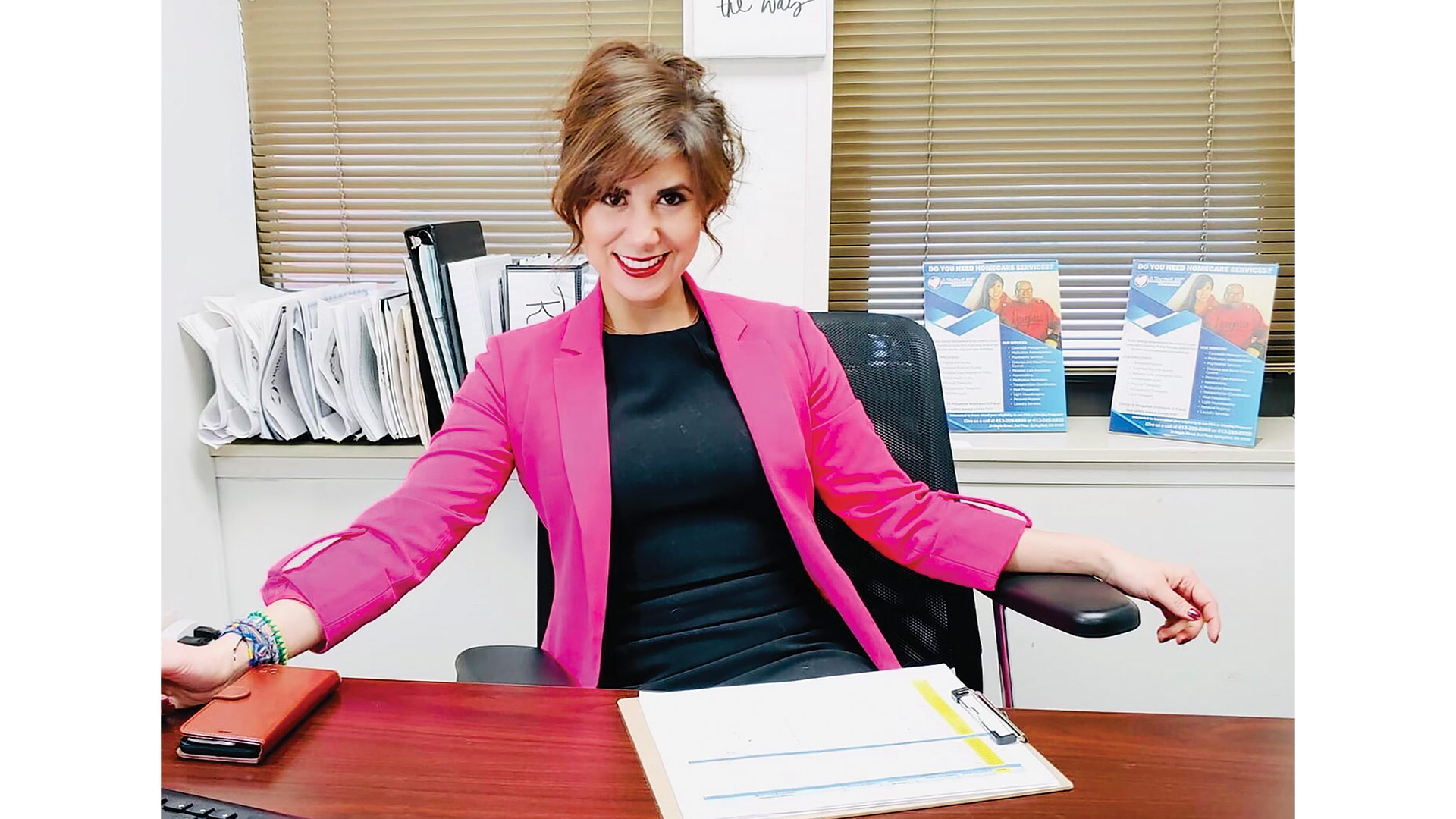
Claudia Lora says communication with clients was key to navigating the pandemic.
“We implemented daily phone calls to our patients that also served as wellness check-ins,” she recalled. Because a majority of the company’s clients are Spanish speakers, A Better Life employs many bilingual staff. At the beginning of their outreach efforts, Lora became concerned when some patients didn’t seem to follow up and respond to communications.
“I thought patients weren’t following up because of a language barrier,” she said. “As it turns out, they weren’t responding because they didn’t understand the severity of the situation.”
On the other hand, she said some patients temporarily stopped their home-care service out of concern about interacting with anyone in person. The system of daily phone calls helped address patient concerns and keep them current on their treatments. In addition, patients received whimsical postcards to lift their spirits and care packages of hygiene products and food staples.
“The pandemic opened our eyes in different ways,” Lora said. “It made us aware that we needed a system of daily phone calls in both programs, which we will continue even after the pandemic is no longer a concern.”
Growing Need
The lessons home-care agencies learned from the pandemic — some of which, as noted, will lead to changes in how care is provided — come at a time when the need for home-based services is only increasing.
That growing need is due in part to people living longer, of course. According to government data, once a couple with average health reaches age 65, there is a 50% chance one of them will live to age 93, and a 25% chance one of them will see age 97. With the increased longevity, there is also a greater chance these seniors will need some type of assistance with daily chores or treating a malady.
Receiving care at home, with an average cost nationally of $3,800 per month, is less expensive than moving into a nursing home (approximately $7,000 per month), and nearly everyone would rather stay in their home. When seniors need assistance, Anstett said, they often rely on family members out of fear of having an outside person come into their home.
Now that concerns about COVID are easing, she reports that people are increasingly more willing to have someone come in to their home to help, but there are still some who resist. “I wish they could understand we are not there to take away their independence, but to give them more independence.”
Lora said some of her patients were reluctant to allow people to come into their homes until they considered the alternatives.
“The only other option for people receiving medical care would have been checking into a skilled-nursing facility or a nursing home,” she noted. “I knew that was the last place they wanted to go.”
She added that the extensive news coverage of high rates of COVID in nursing homes and the high case rate locally at the Holyoke Soldiers Home convinced most people that care at home was a wise choice.
Anstett and Lora both pointed out that their companies always make sure anyone providing home care wears appropriate personal protective equipment and follows the latest guidelines for preventing the spread of COVID. Anstett said she encourages her caregivers to get vaccinated, but doesn’t force the issue because she recognizes some people have health issues.
“However,” she added, “I make it clear to the unvaccinated folks that the pool of clients willing to see a caregiver who is not vaccinated is fairly small.”
While the pandemic may have slowed down business in the short term, demographic trends still remain strong for the years ahead. According to U.S. Census Bureau data, about 10,000 people reach age 65 every day. This trend is expected to continue until 2030, when all living Baby Boomers will be at least 65 years old.
Looking Ahead
Fifteen months after the chaotic early days of the pandemic and with many people now vaccinated, Lora said A Better Life is busier today than before the pandemic.
“In the last six months, admissions have increased by around 50%,” she noted. “That’s more than I have seen in the past three years; it’s been insane.”
She added that her company is now short-staffed because of the rapid growth it is seeing and has been offering incentives to try to bring more CNAs and PCAs on board.
Anstett said her client numbers and caregiver numbers are back to where they were before the pandemic and noted that she has not had any problem filling open positions.
“I just cut 80 paychecks, and we are anticipating even more growth,” she said, adding that her secret to hiring is treating caregivers with respect and encouraging them to grow in their careers. “I stay in touch with every one of our caregivers. They’re the reason I’m working, so I treat them with the utmost respect.”
While many professions look to push out older workers, Anstett said she appreciates more seasoned workers and looks forward to hiring them. “Caregiving is an opportunity to keep working for those who want to, and we welcome their experience.”
Pointing out that she hired another case manager last week, Lora added that, while her organization is expanding, it has not forgotten its mission.
“Even with our growth,” she said, “we see our patients as part of a family and a community, not just a number.”



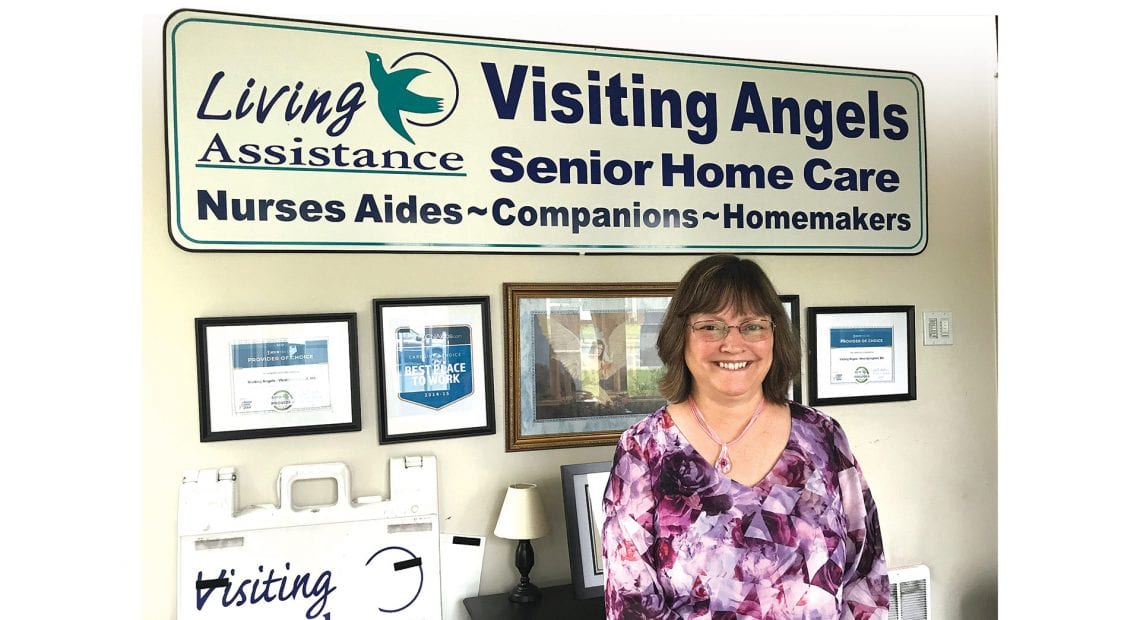
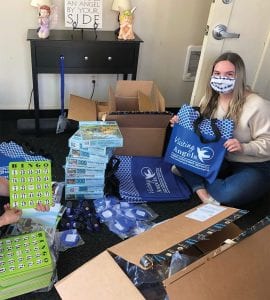 This week, Visiting Angels provided the prizes for the Bingo program. The Visiting Angels bags included a puzzle, nostalgic candy, and other assorted Visiting Angels goodies with information about the company’s services.
This week, Visiting Angels provided the prizes for the Bingo program. The Visiting Angels bags included a puzzle, nostalgic candy, and other assorted Visiting Angels goodies with information about the company’s services. “The goal is to support clients who prefer to remain at home, but need care that cannot easily or effectively be provided by family or friends.”
“The goal is to support clients who prefer to remain at home, but need care that cannot easily or effectively be provided by family or friends.”
